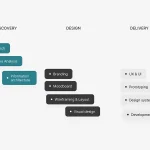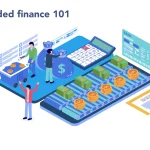
Debt consolidation strategies can reduce stress levels by consolidating multiple debt payments into one manageable payment schedule and lowering interest rates. By eliminating late fees and credit damage sooner, debt consolidation allows borrowers to escape debt quicker.
However, debt consolidation strategies must be approached carefully and must address the underlying causes that contributed to debt accumulation. Here are five common debt consolidation strategies.
1. Credit Counseling
Credit counseling can be seen as one means to consolidate debts into one easy payment plan and help take control of finances and get back on the right path.
An agency will usually work with your creditors to negotiate lower interest rates and establish more manageable monthly payment schedules, while depending on the program you may need to close some credit card accounts – although this could temporarily impact your score, but should improve as you continue paying down debts.
Some credit counselors provide debt management plans (DMPs), which combine your multiple credit cards into one monthly payment with an established timeline to get out of debt. Credit counsellors may also explain different repayment strategies like debt snowballing or debt avalancheing and provide advice on how they might fit with your situation. Ideally, nonprofit credit counseling agencies do not charge a fee for their services but may collect small fees from creditors whom you’re paying off directly.
2. Refinancing
Debt consolidation loans allow you to consolidate multiple debt balances into one loan account with one interest rate, potentially lowering cumulative interest payments, decreasing credit utilization ratio and simplifying finances.
Debt consolidation loans may also save money if your credit is good enough to qualify for low rates on debt consolidation loans, and depending on their terms you may also be able to reduce debt more quickly.
Be mindful that the longer it takes you to pay off your debt, the higher your interest payments may become. Look for lenders without origination fees – extra charges added onto the cost of your loan that are easily calculable using an origination fees calculator before applying. Make sure you create an effective repayment plan to follow and ensure it fits within your budget and spending habits.
3. Borrowing from Family and Friends
Consolidating debts into one single loan may make managing multiple debt payments simpler and may help lower interest rates or monthly expenses; however, this strategy may not work for everyone.
Debt consolidation loans involve taking out new debt to consolidate other existing ones into one monthly payment with an established payback schedule.
This strategy may prove especially helpful if your debt is high-interest debt and most of your monthly payment goes toward interest charges instead of decreasing its balance.
But if your spending habits contributed to your debt accumulation in the first place, debt consolidation might not make much sense. To get started with our rate tool and learn about debt consolidation options. Alternatively, speak with one of Morgan Stanley Financial Advisors directly about how they could tailor an approach specifically tailored for you.
4. Debt Management Plan
Debt consolidation may make sense for certain borrowers by consolidating multiple credit accounts into a single loan and streamlining payments into one convenient monthly bill. Doing this may save on interest costs while speeding up debt payoff.
Before considering debt consolidation options, it is crucial that all possible ramifications are carefully evaluated. A clear payment strategy and plan must also be in place.
As an example, when consolidating credit card debt using a balance transfer or consolidation loan, your initial credit scores could experience a temporary drop, while also decreasing the outstanding payments you need to manage. Furthermore, it’s crucial that you address any underlying issues contributing to your debt problem and implement healthy money management practices – this way a debt management plan can provide a path toward financial freedom by streamlining payments and decreasing interest charges.







